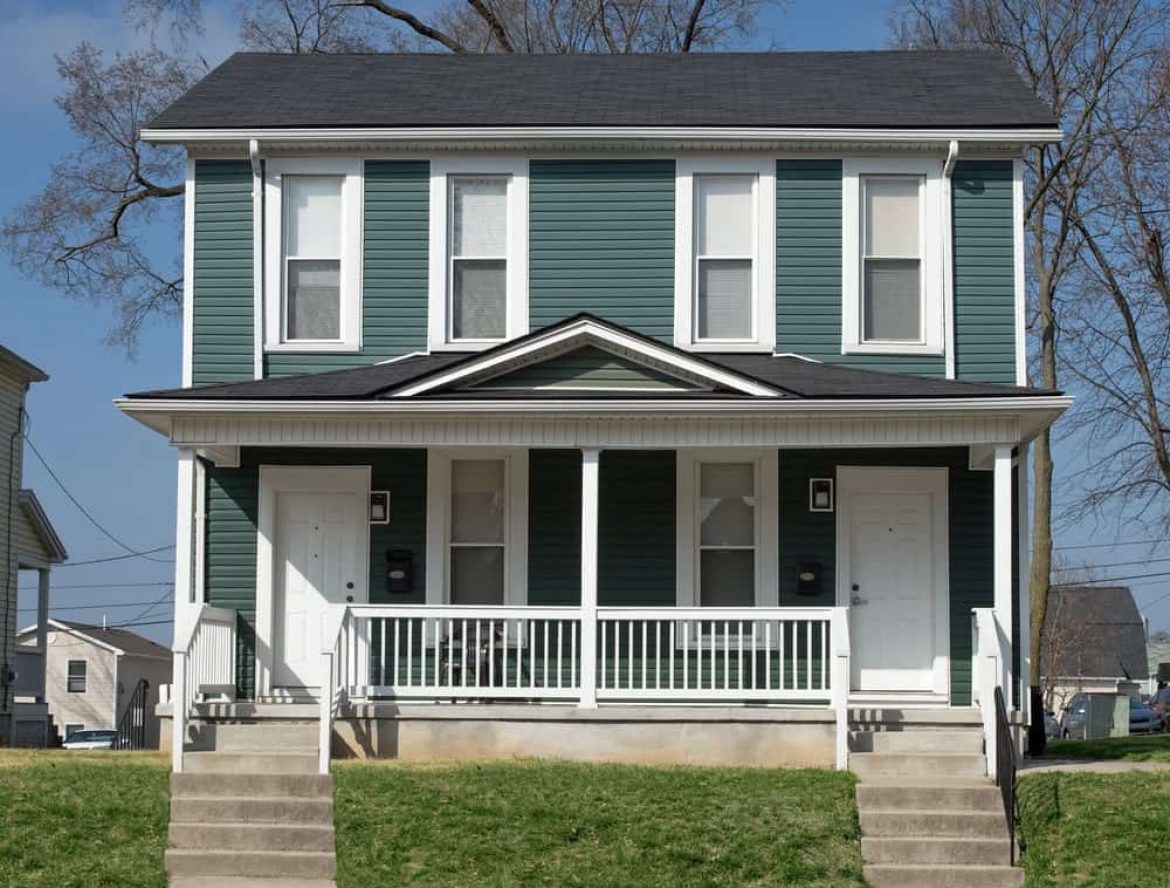By Lisa Johnson Mandell |
What is a duplex? Homes come in many shapes and configurations, and one type that’s popular with extended families or budding landlords is a duplex. It’s not just one home, but two. The units or apartments may be stacked one on top of the other on separate floors, or they may be side by side with a shared wall. A duplex may also be called a “multifamily dwelling,” because more than one family can live in this type of building.
What is a duplex?
A duplex is sometimes confused with a “twin home,” but they’re not the same type of real estate. A twin home may look like a duplex: two separate homes sharing a wall. But with a twin home, the lot line actually runs through the common wall—so on each side you have an individual home on an individual lot, even though they’re connected.
A duplex is different: Rather than owning just one home, you’re the proud owner of two. As such, a duplex will likely cost more than a single-family home at the outset. However, if you rent out the other apartment, this revenue can drastically offset your mortgage and expenses, and potentially make duplex living cheaper than what you’d pay as the owner of a free-standing house.
A duplex is a popular option for people who want to keep family members nearby or who want a steady income from a rental property that’s not too far away to manage. It can also be a great real estate investment or a creative option for a first-time home buyer, under the right circumstances.
The upsides of a duplex
- A lower cost: On average, living in one side of a two-family duplex (while renting out the other apartment in the building) is more affordable than living in a single-family home with a similar number of bedrooms, bathrooms, and square footage.
- Help with mortgage payments: Let’s say your monthly mortgage payment on a duplex house is $1,700, and you rent out the other duplex unit for $900. You’ll need to come up with only $800 each month to make the payment. Or you could pay off your mortgage even faster by making extra payments on the principal, moving you closer to the ultimate goal: rental income.
- Tax deductions: Unlike with a single-family property, with a duplex you can deduct certain home expenses for property maintenance and yardwork because it’s an income property. That can make upkeep on your duplex easier to afford. Just be sure to check with a real estate tax pro before you make an offer on a particular multifamily property, because specifics always vary.
- You can keep family close: If your family includes someone who is elderly, has special needs, or is just starting a new career, he or she can stay in or rent the other half of the unit. The family member can maintain a degree of independence while not going too far from the nest.
- Security: There’s always someone nearby in case you need help, or to watch over your duplex while you’re gone.
- You set all the rules: The advantages of being a landlord include getting to set all of the rules when it comes to pets, smoking, and landscaping in and around a duplex apartment. Note, however, that being a landlord and building manager also has its downsides.
The downsides of a duplex
- Your tenants live right next to you: This could potentially be awkward if they’re knocking on your door at all hours with requests or complaints.
- You’re responsible for all maintenance: Anything that breaks inside or outside the unit, the way the yard looks, utility issues—you have to take care of it all. Being a landlord may not be easy.
- Renters are not guaranteed: If the rental market is soft, it can take time to find ideal tenants. If you don’t have renters lined up for the second unit, you’ll have to make the entire mortgage payment on the duplex yourself.
- Privacy may be an issue: You could be sharing a floor, ceiling, or wall with another person. You’ll have to deal with all of the noise, smell, aesthetic, and parking issues that come from living so close to someone else in a duplex.
- You’ll have to deal with damage: No matter how carefully you’ve selected your renters, no one ever takes care of someone else’s property as well as they take care of their own. Stuff happens, and you’ll have to sort it out.
Lisa Johnson Mandell is an award-winning writer who covers lifestyle, entertainment, real estate, design, and travel.

